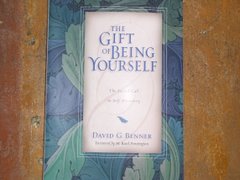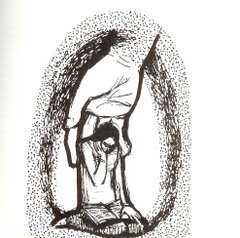Lectio Divina (1)
 The Bible is the Word of God which is always alive and active, always new. Lectio Divina is a traditional way of praying the Scriptures so that the Word of God may penetrate our hearts and that we may grow in an intimate relationship with the Lord. It is a very natural way of prayer and was developed and practised by the early monastic communities.
The Bible is the Word of God which is always alive and active, always new. Lectio Divina is a traditional way of praying the Scriptures so that the Word of God may penetrate our hearts and that we may grow in an intimate relationship with the Lord. It is a very natural way of prayer and was developed and practised by the early monastic communities.Through the practice of Lectio Divina, as individuals and community, we leave space for God's Word to transform us so that we may begin to look upon our world as it were with the eyes of God and to love what we see with the heart of God. "Lectio Divina", a Latin term, means "divine reading" and describes a way of reading the Scriptures whereby we gradually let go of our own agenda and open ourselves to what God wants to say to us. In the 12th century, a Carthusian monk called Guigo, described the stages which he saw as essential to the practice of Lectio Divina.
Lectio (reading): Read the Word of God slowly and reflectively. Any passage can be used but the passage should not be too long.
Meditatio (reflection): Think about the text, ruminate upon it, and ask what God wants to give us.
Oratio (response): Leave the thinking aside. Simply let our hearts speak to God. This response is inspired by our reflection on the Word of God.
Contemplatio (rest) : Let go of our own ideas, plans, words and thoughts. We simply rest in the Word of God. We listen at the deepest level of our being to God who speaks within us with a stil small voice. As we listen, we are gradually transformed from within. This transformation will have a profound effect on the way we live and the way we live is the test of the authenticity of our prayer. We must take what we pray in the Word of God into our daily lives.
These stages are not fixed rules but simply guidelines as to how the prayer normally develops. Its natural movement is towards greater simplicity, with less and less talking and more listening.Gradually the word of Scripture begin to dissolve and we encounter God in our hearts. Source: http://www.ocarm.org/lectio






+223.jpg)


























No comments:
Post a Comment